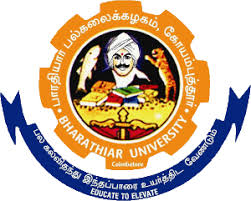As the first Indian astronaut to dock at the International Space Station (ISS), Group Captain Shubhanshu Shukla completed seven fully Indian‑designed experiments as part of the Axiom‑4 mission. This achievement marks a critical milestone in India’s journey toward its Gaganyaan crewed programme.
🚀 Mission Highlights
-
Mission Duration & ContextShukla spent 18 days aboard the ISS (June 26–July 15, 2025), taking part in over 60 experiments from 31 nations; India contributed seven major ones via ISRO and collaborating institutions.
🔬 Seven Indian‑Designed Experiments
-
Space Microalgae (ICGEB & NIPGR): Deployed and stowed algae strains to study growth in microgravity—potential sources of food, oxygen, and biofuel.
-
Sprouts Project (UAS Dharwad & IIT Dharwad): Germination and early growth of salad seeds (like mung and methi) in space; seeds will be grown for multiple generations on Earth to analyze genetic, microbial, and nutritional changes.
-
Voyager Tardigrade (IISc Bengaluru): Studied survival, revival, reproduction and transcriptomics of extreme-living tardigrades in microgravity.
-
Myogenesis (InStem): Investigated muscle regeneration and supplement effects against skeletal muscle atrophy—relevant to both astronauts and Earth‑based muscle degeneration treatments.
-
Voyager Displays / Cognitive Task Study (IISc Bengaluru): Tested human interaction with electronic displays and cognitive tasks like spatial memory, stress, and well‑being in orbit.
-
Cyanobacteria in Microgravity (ICGEB): Analyzed growth and proteomic response of cyanobacteria under space conditions on different nutrient modes.
-
Food Crop Seeds in Microgravity (IIST & Kerala Agricultural University): Evaluated growth and yield parameters of food crop seeds in microgravity.









![NCCS Pune Project Walk INs 2025 July [30 Posts]](https://blogger.googleusercontent.com/img/b/R29vZ2xl/AVvXsEhAW54eap63GxGfzxYcwaARqmttFi-5wN9IZoYArXsvgq8HNgVuPpPwSvUAMvwBBHDtl_QSx2dElLSWS5Bzn8OyOdGAr016GgKKd7P9y6b8FnBGbqP1Cu8dnoC4x4U3OS62Ty3GTbyHUF6956xtJKd2pShNgT-AqbSi6mPy3UeDZfXsvm75A9gbdbRhl6Vt/w680/NCCS.jpg)



0 Comments